The Mevlana Museum
The Mevlana Museum
The site of Mevlâna Dergâh, which is now used as a museum, was the Rose Garden of the Selçuklu Palace, while the garden was gifted by Sultan Alâeddin Keykûbad to Mevlâna's father, Sultanü'l Ulema Bahaeddin Veled. When Sultanü'l Ulema died on 12 January 1231, he was buried in the tomb's current location.
This is the first funeral in the rose garden. After the death of Sultanul Ulema, those who loved him appealed to Mevlâna, saying that they wanted to build a mausoleum on his father's grave, but Mevlâna refused this request, saying, "Can there be a better mausoleum than the Dome of the Sky?" However, when he died on December 17, 1273, his son, Sultan Veled, granted the wishes of those who wanted to build a mausoleum on the tomb of Mevlâna.
The construction of the mausoleum was initiated by Sultan Veled, the son of Mevlana, and in later years the graves of other family members were also transported here. In 1954, the magazine began to serve as a museum. This place, called the Mevlana Museum, offers information about the life, works and philosophy of Mevlana Celaleddin Rumi.
Information about the Mevlana Museum
Mevlana Museum is a museum in Konya, Turkey, dedicated to the world-famous Turkish thinker Mevlana Celaleddin Rumi. Mevlana Celaleddin Rumi was a famous mystic, poet and philosopher who lived in the 13th century. He was a famous mystic, poet and philosopher who lived in the 20th century. He is known as the founder of the Mevlevilik sect and left a great influence with his works, thoughts and teachings.
The Mevlana Museum contains the mausoleum and the magazine of Mevlana Celaleddin Rumi. The museum was built on the site of Mevlana's magazine after his death. The mausoleum of Mevlana is arranged as a place that also houses the graves of important names of the Mevlevi sect.
The Mevlana Museum offers visitors information about the life, thoughts and teachings of Mevlana Celaleddin Rumi. The museum exhibits manuscripts belonging to Mevlana, original artifacts, examples of calligraphy and objects reflecting Mevlevi culture. In addition, the Sama rituals (ritual of return) of the Mevlevi dervishes are also performed in the museum.
The Mevlana Museum is of great importance in terms of Turkish culture and history. It attracts the attention of visitors with its historical artifacts, architectural features and mystical thoughts of Mevlana. The museum is heavily visited by domestic and foreign tourists throughout the year.
The Mevlana Museum is on the UNESCO World Heritage List and is one of the most important cultural and historical sites in Turkey. At the same time, Mevlana's philosophy and teachings of love have had a great impact on the world, and Mevlana's works have been translated and read in many languages.
Where is the Mevlana Museum?
The Mevlana Museum is located in Konya, Turkey. The museum is located in the center of Konya and includes the Mausoleum of Mevlana Celaleddin Rumi. Konya is known as the place where Mevlana lived and was influential, and therefore the Mevlana Museum is one of the most important tourist and religious sites in Konya. The museum presents information about Mevlana's life, works and philosophy of mysticism.
How to get to the Mevlana Museum?
The museum of Konya Mevlana It is located in the city center of Konya and can be reached in different ways depending on the transportation options in the city. Here's some general information on how to get to the Mevlana Museum:
By air: If you plan to come to Konya from another city, you can come to Konya Airport by plane.
You can get from the airport to the city center by taxi or public transport.
Train or Bus: If you want to travel to Konya by train or bus, you can get to the city center and the Mevlana Museum from the Konya Train Station or bus terminals in the city.
Taxi: When you are in the city center of Konya, you can easily reach the Mevlana Museum by taxi. A taxi can be a quick and direct transportation option.
Public transportation: Bus and tram lines in the city centre of Konya can take you to the Mevlana Museum. You can reach the area where the museum is located by using public transportation within the city.
Car rental: If you want to explore Konya in your own car, there is also the option of renting a car in the city. With a rental car, you can easily reach the Mevlana Museum and explore other tourist attractions in the area.
Konya Mevlana Museum is a popular place in the city center of Konya, so it is usually easy to find with directional signs and tourist information. You can also get detailed transport information from the tourist offices in the city or from local guides.
Is there an entrance fee to the Mevlana Museum?
The Mevlana Museum is an important cultural and religious site located in Konya and contains the mausoleum of Mevlana Celaleddin Rumi. The fact that the Mevlana Museum does not have an entrance fee provides a great advantage to visitors and makes it easy for everyone to visit the museum.
Mevlana Museum opening and closing hours
What time does the Mevlana Museum close? The Mevlana Museum's opening and closing hours may change depending on the season. In general, the museum is open to visitors every day of the week, but the hours may change on some special days or holidays. The following are the typical opening and closing hours:
Summer season (April to October):
Weekdays and weekends: 09:00 - 19:00
The winter season (November-March):
Weekdays and weekends: 09:00 - 17:00
However, it is important that you check the official website or contact numbers of the Mevlana Museum before visiting. So you can find out the current opening and closing hours and be aware of possible changes. In addition, situations such as special events or renovation works may also cause changes in opening and closing hours.
Activities to be done at the Mevlana Museum
Some activities you can do while visiting the Mevlana Museum:
Tour of the museum: Inside the Mevlana Museum, there is the mausoleum of Mevlana Celaleddin Rumi, a magazine and various galleries. By taking a tour of the museum, you can visit the exhibitions about Mevlana's life, learn about her and better understand the philosophy of mysticism.
Watching the show: Visitors to the Mevlana Museum may have the opportunity to watch the Semazen exhibitions. The Semazans revive the tradition of Mevlevilik with their rotating ritual dances. These shows give you a spiritual experience.
Listening to classical music: The Mevlana Museum sometimes hosts concerts of Mevlevi music. By attending these concerts, you can listen to the soothing melodies of Mevlevi music and nourish your soul.
Prayer and Meditation: The Mevlana Museum offers visitors a spiritual environment. You can take time to pray, meditate, or experience your own inner journey in a quiet corner of a museum or shrine.
Shopping for gifts: Near the Mevlana Museum, there are shops selling souvenirs, books, Semazen figures and other souvenirs related to Mevlevilik. By visiting one of these shops, you can buy an item that reminds you of Mevlana.
The Joy of the Garden: The garden of the Mevlana Museum offers a peaceful atmosphere. You can walk in the garden, sit in the recreation areas, and enjoy the beauty of the surroundings. It allows for many different activities as it is a place that gives visitors both a historical and a spiritual experience. It is important that you respect Mevlana's teachings and cultural heritage during your visit.
If you want to see places to visit near the Mevlana museum The Konya Land Route, The route of Konya Meram and ... The Konya Selçuk Route If you want, you can make your own itinerary.
Is the Mevlana Museum a work of history?
Is the Mevlana Museum a historical work? Mevlana Museum is a museum located in Konya and contains the tomb of the world-famous Turkish thinker Mevlana Celaleddin Rumi. Mevlana Celaleddin Rumi is the founder of the Mevlevi sect, which has an important place in the tradition of Islamic Sufism.
The Mevlana Museum was built on the site of Mevlana's magazine after his death. The museum houses a collection of works from Mevlana Celaleddin Rumi's mausoleum, tomb and recent period.
The Mevlana Museum is located within the Seljuk period dergah complex, a historic structure built in the 13th century. It is located within the Seljuk period dergah complex, a historic structure built in the 20th century. This complex is of great historical and architectural significance. The museum building has undergone additions and restorations in various periods during the Ottoman period and later.
The Mevlana Museum is of great value in terms of both Turkish culture and Islamic history. It is an important tourist and cultural center in Turkey. Visitors can learn about Mevlana's life, teachings, and religious heritage by visiting the Mevlana Museum and see historical artifacts up close. The Mevlana Museum is in our province of Konya.

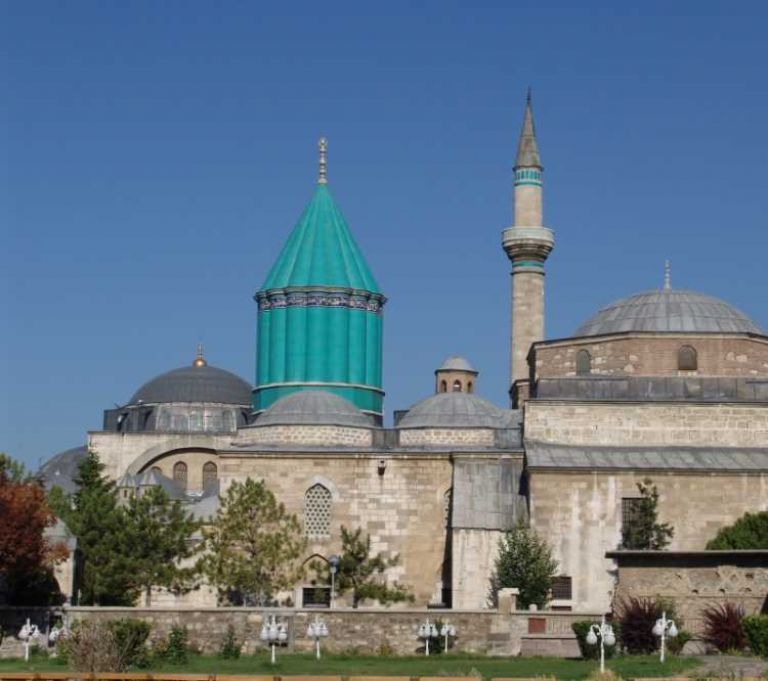
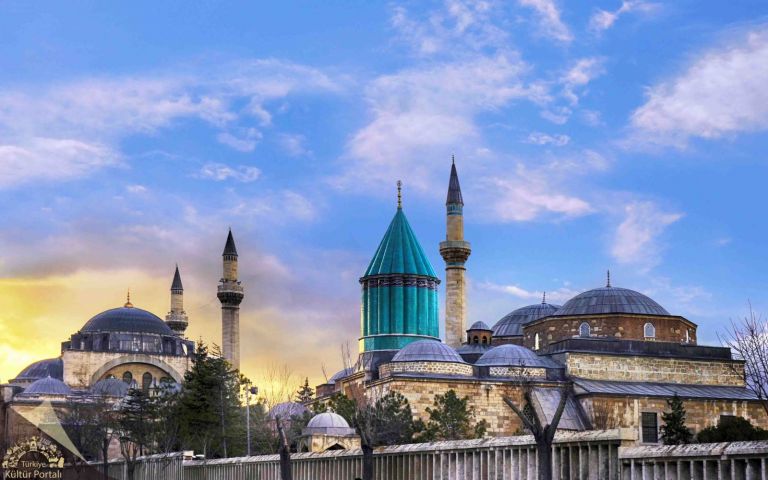


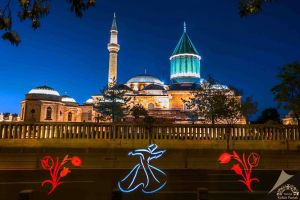
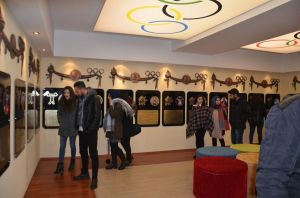
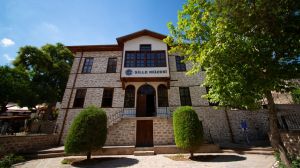
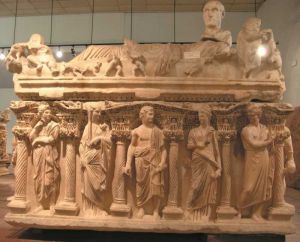
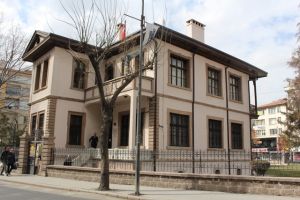
Değerlendirmeler